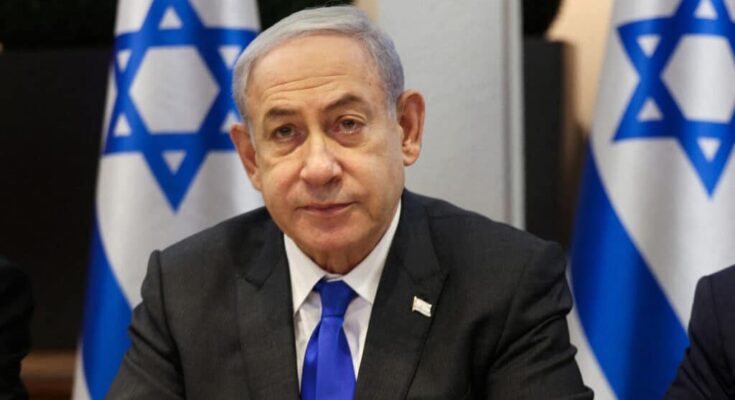
After the withdrawal of U.S. forces from the Middle East, a power vacuum has been created.
Apparently, Netanyahu’s goal is to change the balance of power by targeting Iran, which funds and supplies weapons to both Hamas and Hezbollah.
According to Politico, in a speech, Israel’s Prime Minister stressed that “the day is approaching when Iran will be liberated – and that moment will come much sooner than people think.” And he warned Tehran’s theocratic regime that “there is no place in the Middle East where Israel cannot reach it.”
Israel neutralizes Tehran’s allies
One of the proofs that Israel has set its sights on Iran is the attacks to its key allies, Hamas, Hezbollah and the Houthis of Yemen, while at the same time Netanyahu is showcasing Tel Aviv’s technological clout and spy network.
Lebanon is now in the crosshairs, where since the early hours of Tuesday morning (10/01) Israel has made it clear that it will conduct “limited”, land-based raids on villages in southern Lebanon, asserting that the target is Hezbollah military positions, “which pose a direct threat to Israeli communities in northern Israel”.
The Israeli leadership’s possible goal is to force Hezbollah to withdraw its forces north of the Litani River, 29 km from the Israel-Lebanon border, in accordance with the U.N. resolution to end the war in 2006.
Netanyahu regains his popularity in Israel
At the same time, after the elimination of Hezbollah leader Nasrallah, Netanyahu, who was facing major problems inside Israel, is bouncing back in the polls, which means he has the necessary support to extend the ground offensive at will in persistent defiance of Western appeals.
Washington expects the Israeli ground invasion of Lebanon to be limited and targeted, as the IDF says, and not as extensive as the 2006 invasion that sparked a short but fierce war that left both sides wounded.
However, they do not cease, according to the paper, to fear both an Iranian attack on Israel – the reason why the U.S. is sending reinforcements to the Middle East – and also to worry that the Israeli leadership might overstep the mark.
Analysts opinion about Middle East
Apart from the obvious political benefit for Netanyahu, the Israeli ground offensive in Lebanon is also dictated by military logic, according to analysts.
Several senior Israeli officials, including former Mossad chief Tamir Pardo, are calling for the operation in Lebanon to continue and expand in order to change the landscape in the Middle East.
With the strikes it has managed on Hezbollah in the past 12 days, Israel has “an opportunity that should not be missed,” he said, speaking to Israeli media. He added that Hezbollah is unlikely to recover to control Lebanon to the same extent it did after the 2006 war.
“Almost its entire leadership, political and military, as well as thousands of members and commanders have been killed, wiped out or are no longer combatants, not to mention the large quantities of strategic ammunition destroyed by the IDF,” the Atlantic Council analyst said.
“The region may be experiencing the beginning of the end of Iran’s axis of resistance,” he added, something that would certainly not displease many Arab countries, including those in the Gulf.
However, for Julien Barnes-Dacey of the European Council on International Relations, the Israeli leadership’s desire to shape a new order in the Middle East is a “dangerous illusion”. As he argues, “the Israeli offensive marks an important tactical achievement, but it remains cut off from a viable strategic path to sustainably address Israeli security needs and end the series of interconnected regional conflicts.”



